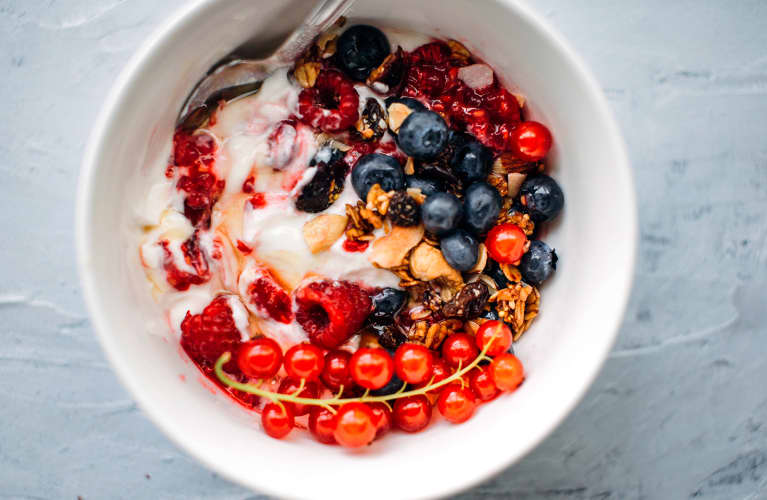Vegetarian Diet Too Many Carbs
Preventing Carbohydrate Overload On A Plant-Based Diet

Few ways of eating are as nutrient-dense or health-promoting as a plant-based diet. With all the phytochemicals, antioxidants, vitamins, minerals, and fiber found in a plant-based diet, you might be wondering if there are any drawbacks. Turns out there are. A plant-based diet can easily become a carb-loaded diet if not thoughtfully planned out.
Consuming more carbohydrates than you can metabolize is the quickest way to disrupt normal metabolism and lead to health consequences like weight gain, metabolic syndrome, type 2 diabetes, and even Alzheimer's. To obtain all the benefits of a plant-based diet without the potential metabolic ramifications of excess carbohydrate, aim to incorporate these three guidelines into your daily diet:
1. Skip the processed stuff.
Walk into any supermarket, and the sheer amount of plant-based products is overwhelming: nutrition bars, juice, bread, chips, crackers, cereal, and other grain-based products. All of these foods technically fit into a plant-based diet. And while they are admittedly convenient and delicious, they not always filling, making it easy to consume too many carbohydrates.
Take for instance the average brand of granola. It can contain up to 40 grams of carbohydrates in only a half cup! Now imagine you eat a whole bowl of granola. It is entirely possible to consume over 100 grams of carbohydrate in just one meal. That's enough carbohydrate to fill your liver completely full of glycogen. A few more snacks and meals like that throughout the day could fill your muscle glycogen in addition to liver glycogen, leaving nowhere for additional carbs to go except fat cells.
2. Eat whole-food sources of carbohydrate.
When you do eat carbs, make sure they are whole-food sources. For example, whole grains like oats, legumes like black beans, root vegetables like carrots, and fruit like strawberries. Whole foods contain compounds like water and fiber to increase the feeling of fullness. In addition, whole foods typically require more chewing, which slows you down and allows your brain to register when you have eaten enough. Furthermore, whole-food-based carbohydrates are healthier options because they do not contain added sugars, chemicals, or damaged fats like trans fats.
3. Aim to get a source of fat or protein with each meal and snack.
Great sources of fat include nuts, nut butter, seeds, oils, avocado, and ghee. Rich sources of protein include tofu, tempeh, Greek yogurt, eggs, fish, poultry, and protein powders like collagen hydrolysate. Dietary fat and protein are the building blocks for the cells, tissues, and organs of your body, so it's imperative that you get adequate amounts. In addition, these two macronutrients take longer to digest, which keeps you full and fueled for longer. Here are some great low-carb snack options that won't spike your blood sugar.
A day's worth of low-carb plant-based meals and snacks.
Wondering how to put these guidelines into practice? Check out this example for a practical approach to following a carbohydrate-controlled diet that is rich in plant-based foods.
Breakfast:
Smoothie made from frozen berries, hemp milk, chia seeds, and collagen powder
a.m. snack:
Lunch:
Arugula salad with shredded carrots, scallion, slivered almonds, tofu, avocado, and homemade vinaigrette with olive oil and lemon
p.m. snack:
Sliced bell pepper with plain hummus
Dinner:
Seared salmon, mashed sweet potatoes, and steamed broccoli drizzled with olive oil
Dessert:
One ounce of 70 percent dark chocolate
If you're on a plant-based diet but still not feeling your best, this could be why.
You are now subscribed
Be on the lookout for a welcome email in your inbox!
Food Fundamentals to Optimize Well-Being
With Terry Wahls, M.D.

More Food
Popular Stories
https://www.mindbodygreen.com/articles/preventing-carbohydrate-overload-on-a-plant-based-diet
In order to save this article, you will need to Log In or Sign Up!
Close
Vegetarian Diet Too Many Carbs
Source: https://www.mindbodygreen.com/articles/preventing-carbohydrate-overload-on-a-plant-based-diet